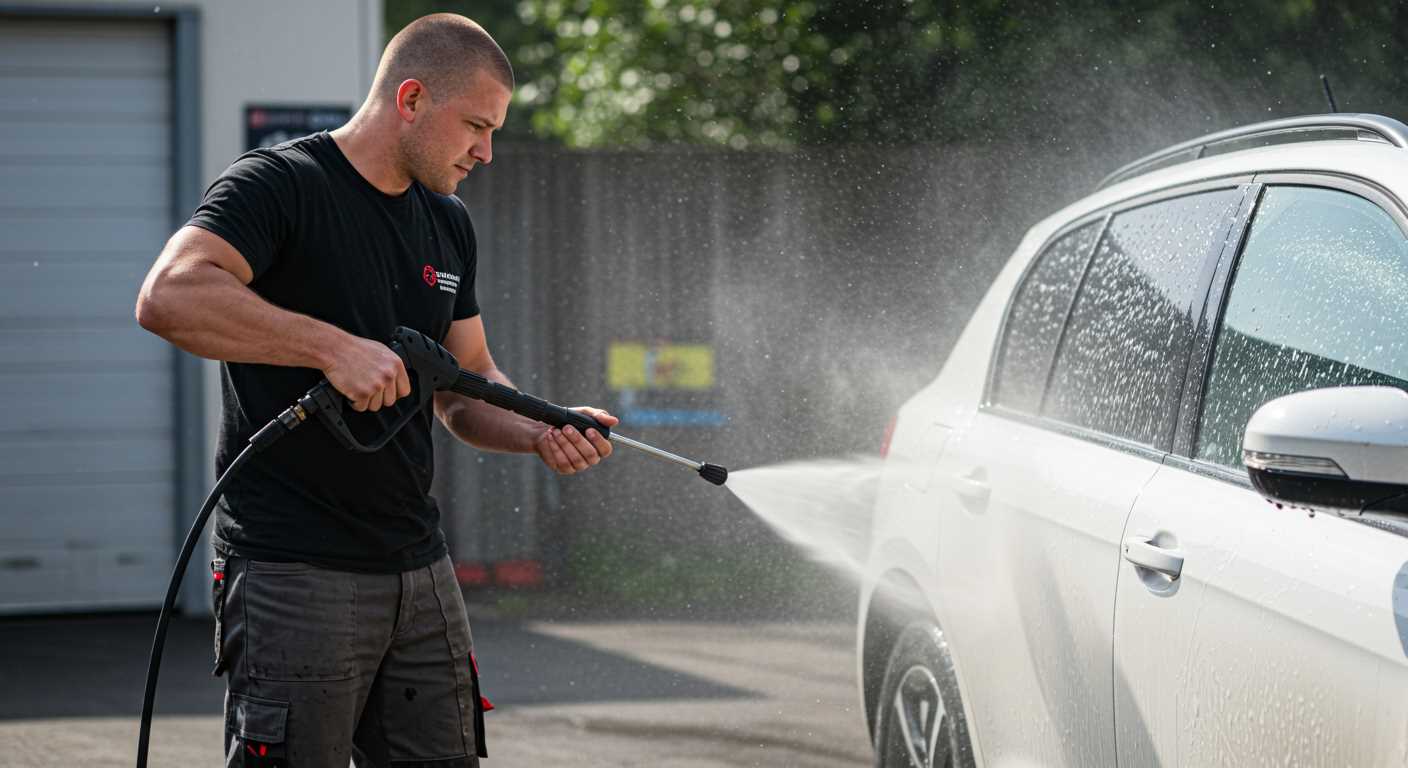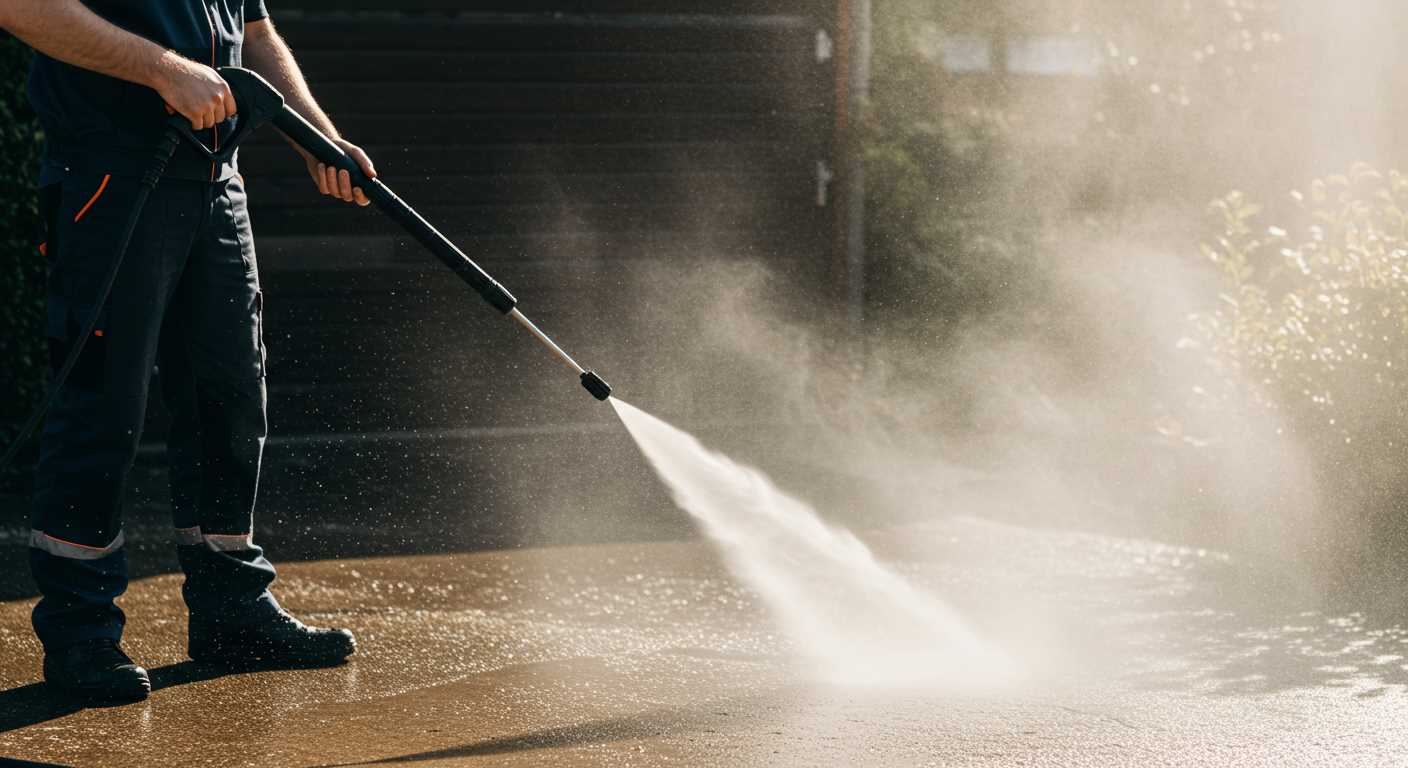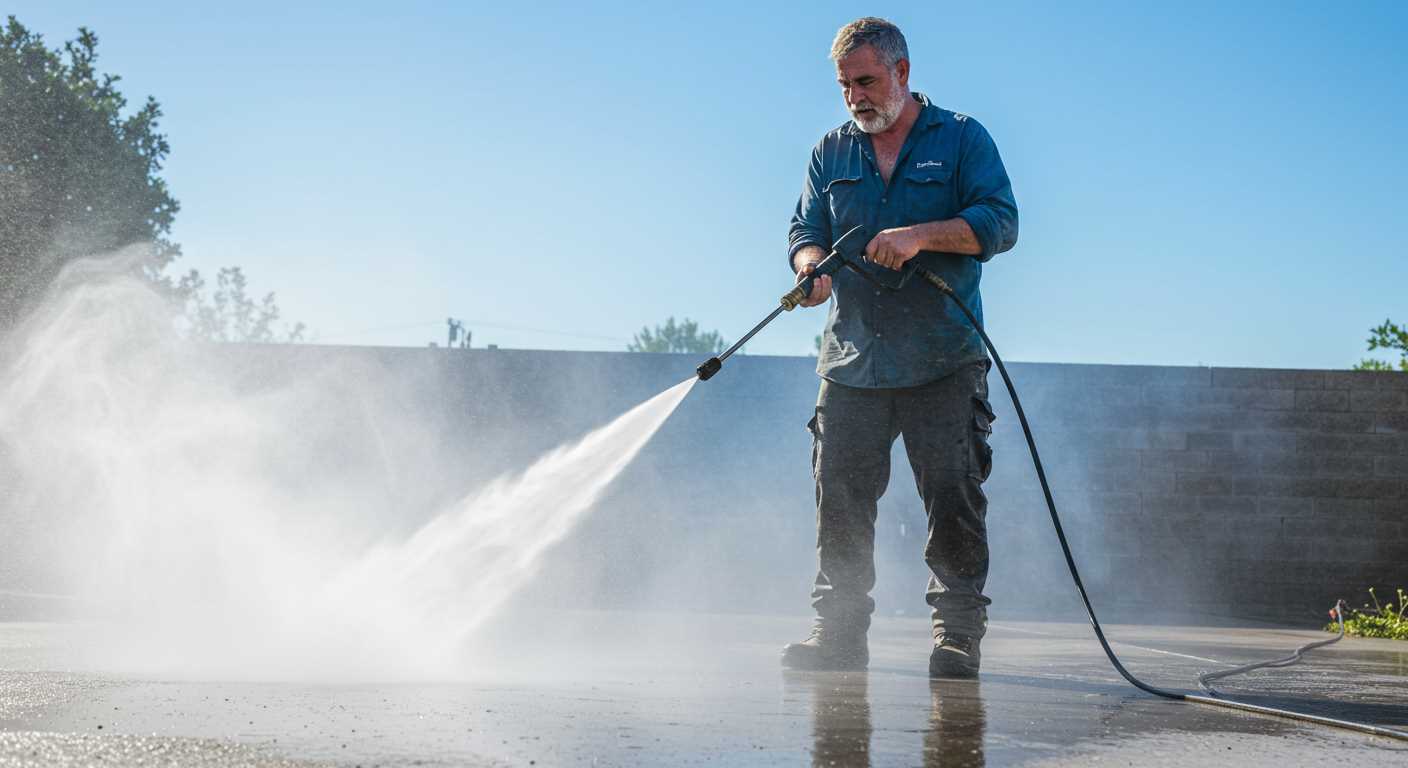



To ensure your cleaning device operates smoothly, always use regular unleaded petrol with an octane rating of 87 or higher. This type of fuel is widely available and affordable, reducing operational costs while maintaining performance.
When refuelling, avoid mixing petrol with oil unless your manual explicitly recommends it. Most modern machines operate on a 4-stroke engine, which requires standard unleaded fuel without any additives. This approach optimises combustion and helps avoid unnecessary wear.
For equipment stored long-term, consider using fuel stabilisers to prevent degradation. Stale fuel can lead to starting issues and decreased efficiency. Always check your manual for specific fuel recommendations and storage guidelines to maximise the lifespan of your machine.
Finally, be mindful of your fuel source; using contaminated or low-quality petrol can cause significant damage to internal components. Prioritising high-quality fuel will keep your device performing at its best for years to come.
Understanding Fuel Types for Pressure Washers

For optimal performance, stick to unleaded petrol with an octane rating of 87 or higher. The absence of ethanol is crucial; even small percentages can damage components like the fuel system and engine. Always check the manufacturer’s specifications for recommendations tailored to your unit.
Here’s a concise comparison of fuel types:
| Fuel Type | Recommended? | Notes |
|---|---|---|
| Unleaded Petrol | Yes | Preferred for most models. Ensure no ethanol is present. |
| Diesel | No | Incompatible with most gasoline engines. |
| Ethanol-blended Fuels | No | May cause significant damage over time. |
| High-octane Fuels | Yes | Can enhance performance but not always necessary. |
Using fresh fuel is crucial, ensuring its usage within 30 days. Old petrol, especially with ethanol, can lead to fuel system clogs. Always keep your tank full to avoid moisture buildup, which can cause rust in storage.
In case of prolonged inactivity, consider using a fuel stabiliser. This will keep the fuel fresh and prevent potential starting issues down the line.
Differences Between Two-Stroke and Four-Stroke Engines
For small engines powering equipment like cleaning tools, understanding the differences between two-stroke and four-stroke engines is crucial for optimal performance. Two-stroke engines are simpler, lighter and typically generate power with every revolution. This results in a higher power-to-weight ratio, making them suitable for portable devices.
On the other hand, four-stroke engines operate on a more complex cycle with four distinct strokes: intake, compression, power, and exhaust. This design allows for more fuel efficiency and reduced emissions. While heavier, four-stroke engines often deliver smoother operation and longer lifespan, as they run at lower RPMs.
Fuel requirements differ as well. Two-stroke engines require a pre-mixed fuel oil combination for lubrication, while four-stroke engines use separate oil systems, reducing the hassle of fuel preparation. However, the two-stroke’s need for mixing can lead to more maintenance over time and potential issues if the mixture isn’t correct.
In terms of maintenance, two-stroke engines tend to require more frequent repairs due to their design, which can lead to overheating and wear. Four-stroke engines are built for durability and require less frequent service, making them more reliable for extended use.
Ultimately, the choice between these engine types depends on the specific needs of the task at hand. For convenience and portability, two-stroke may be preferable, while for longevity and efficiency, four-stroke engines are often the better option.
Choosing the Right Octane Rating for Your Pressure Washer

For optimal performance, select a fuel with an octane rating of at least 87 for four-stroke engines. While using higher octane ratings may not harm the engine, it rarely offers significant advantages.
In two-stroke systems, it’s crucial to follow the manufacturer’s guidelines on fuel specifications, as they tend to be more sensitive to fuel quality. A minimum octane rating of 89 is typically recommended for these models to prevent knocking and ensure smooth operation.
Regularly using high-quality fuel can enhance engine longevity and reduce the risk of damage. Always avoid fuels containing excessive ethanol, as they can lead to corrosion and other issues over time.
Monitor how your unit performs with different fuel types. If you notice any performance concerns, consider adjusting the octane level and see if it resolves the issue. Keeping a record of your experiences can help identify the most suitable fuel for your particular model.
Remember, your choice of octane is just one aspect of proper maintenance. Regular oil changes and air filter replacements also contribute significantly to the efficiency and lifespan of your equipment.
How to Safely Fill Your Pressure Washer with Gas

Before proceeding, ensure your machine is turned off and cool. This prevents any risk of fire or injury during the refuelling process.
Use a funnel to prevent spills while pouring fuel; this helps maintain cleanliness. Only fill the tank to the recommended level, avoiding overflow, which can cause engine issues.
Always opt for an outdoor or well-ventilated area to prevent inhalation of fumes. Avoid refuelling near open flames or sparks, and keep a fire extinguisher nearby for added safety.
Wipe any spills immediately with a cloth to prevent slippage and accidents. After filling the tank, securely close the cap to avoid evaporation and contamination of the fuel.
It’s advisable to check for any leaks around the fuel system before starting your unit, ensuring everything is in proper working condition. Additionally, using fuel stabilisers can enhance the longevity of the fuel in your tank, ensuring optimal performance.
Signs Your Pressure Cleaner Needs a Different Fuel
Noticing a decline in performance? It might be time to rethink the fuel. If your machine struggles to start or stalls frequently, the current fuel could be unsuitable. A poor-quality or old fuel mix often leads to these issues, making it essential to use a fresh, appropriate blend.
If you observe excessive smoke during operation, this may indicate an incorrect mixture. Two-stroke engines, for instance, require precise fuel-oil ratios. Using the wrong ratio can lead to inefficient combustion and increased emissions.
Decreased power output is another clear sign. If cleaning tasks take longer than usual, this may result from fuel inefficiencies. Switching to a higher octane rating might provide a noticeable boost in performance if your model allows for it.
Unusual noises during use warrant attention as well. Pinging or knocking sounds may suggest fuel quality issues or incompatibility with the engine type. Investigate the recommended fuel specifications for your specific model.
Finally, frequent clogging of the fuel filter could hint at impurities or improper fuel choice. Regular maintenance and refuelling with the right type can minimise these complications and prolong your device’s lifespan.
Impact of Fuel Quality on Equipment Performance

Low-grade or contaminated fuel can diminish the efficiency and longevity of your cleaning machine. Always opt for high-quality petrol to maintain optimal functionality.
Here are key insights regarding fuel quality:
- Octane Rating: Ensure the fuel meets the required octane specification for your engine. Using lower than recommended ratings can lead to knocking and reduced performance.
- Freshness: Use fuel that has been purchased within the last 30 days. Older petrol can degrade and introduce contaminants.
- Storage Conditions: Store fuel in a cool, dark place to prevent deterioration. Avoid using fuel that has been exposed to moisture or extreme temperatures.
- Additives: Select fuels with detergent additives, which help keep the engine clean and support smoother operation.
- Contaminants: Always check for water or dirt in the fuel. Use a filter when refilling to minimise the risk of introducing impurities.
Regular maintenance of the fuel system is essential. Replace old fuel in the tank, clean the fuel lines, and inspect the fuel filter to avoid clogs that can hinder performance.
For optimal results, I recommend periodically testing different reputable brands and maintaining a log of performance metrics before and after refuelling. This can help identify which fuels yield the best results for your specific cleaning tasks.







